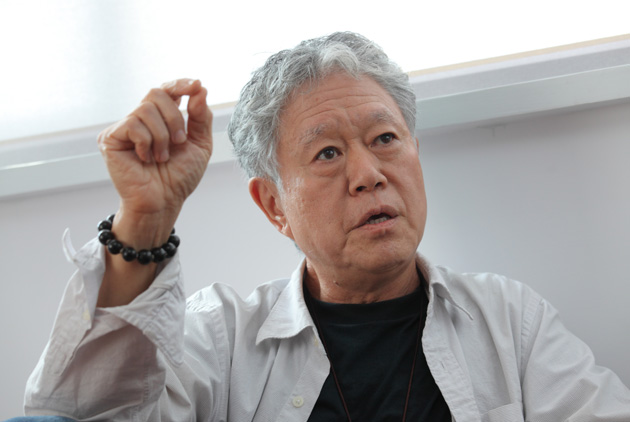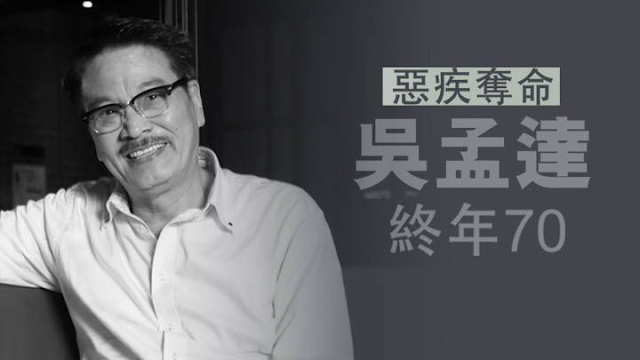Sichuan-born CEO of hotpot chain Haidilao, which went public in 2018, tops Singapore’s 50 Richest List, by Forbes, with estimated net worth of US$13.8 billion
Billionaire restaurateur Zhang Yong, the founder of Sichuan hotpot chain Haidilao, has previously featured on the list of China’s richest people.
Zhang – who according to Forbes has an estimated net worth of US$13.8 billion –replaced brothers Philip and Robert Ng of Singapore’s Far East Organisation and Hong Kong’s Sino Group, who have held the number one spot on the same list for every year this decade.
They are now ranked second on the list, with an estimated combined net worth of US$12.1 billion.
Zhang’s debut appearance on the list came in 2019 after he became a
Singaporean citizen.
His company’s HK$7.6 billion (US$963 million) initial public offering (IPO) on the Hong Kong stock exchange in 2018 also helped to boost his personal fortune.
The controversy
His place on the Singapore's 50 Richest is not without some contention. After discovering that he had become a Singaporean citizen, Chinese netizens expressed anger at Zhang’s decision and called for a boycott of his restaurant chain.
Some people have pointed to his decision as a warning sign that Chinese wealth is fast moving to Singapore given the political instability in Hong Kong. Traditionally Hong Kong is the go-to destination for wealthy Chinese.
Yet this is hardly the first controversy Zhang has faced. Two branches of Haidilao in Beijing had to be shut down temporarily in 2017 after reports emerged of less than ideal hygiene conditions. A branch in Singapore was also closed for two weeks in the same year after it was found guilty of violating food handling practices.
Haidilao staff handling food with their bare hands had been an issue at the company in 2017, along with reported rat infestations.
Zhang decided to team up with Panasonic in 2018 to test the use of an automated kitchen in Beijing. He is confident that he can make use of technology to keep hygiene standard high.
Humble beginnings didn’t hold
him back
Like its name, which translates to “fishing at the bottom of the ocean”, Haidilao had humble beginnings as a small hotpot restaurant in Sichuan province in 1994.
Zhang, who is originally from Jianyang, in Sichuan, graduated from a
vocational school in Chengdu.
After a six-year stint at a tractor factory and a couple of failed attempts at entrepreneurship, he got into the restaurant business with his then-girlfriend-now-wife and a couple of friends.
“I was penniless, so the others were the real investors, although the
entire investment was less than 10,000 yuan [about US$1,400],” Zhang said in an
interview with China’s The Economic Observer newspaper in 2011.
“Though I didn't contribute much in terms of start-up money, I assumed
the position of general manager and promised the others that our assets would
grow to 150,000 yuan within five years.
“I swore that if I couldn’t manage it, I would compensate them. That was a huge amount of money for a group of twenty-somethings in the 1990s, so they were all a bit startled.”
The little restaurant soon expanded and overtook nearby hotpot businesses. “We only had one outlet in Jianyang [at the start],” Zhang said. “Though it was only a small outlet, we managed to edge the surrounding hotpot restaurants out of the market.
“Everyone thought I was mad because I kept investing all our money in the restaurant. Within a few months, we'd become the largest hotpot restaurant in Jianyang.
“At the beginning, we had only four tables, but later we expanded by adding a whole floor. Our restaurant had the best decor and even had air conditioning. In 1998 we opened our second store.”
How Zhang conquered the world
During his time working in tractor manufacturing, he had spent his spare time doing market research into business opportunities. After two initial business failures, he realised that with Haidilao he had found something that resonated, not only with people in China, but around the world.
Haidilao, which is renowned for its spicy dishes, has since grown into a huge global chain with almost 600 outlets worldwide, including in the United States, South Korea, Japan and Singapore.
When it went public in 2018, demand for the shares exceeded supply, which caused the stock to be oversubscribed 20 times. The share price has more than doubled since its debut, which has given the Beijing-based company US$25 billion in capitalisation.
However, in 2011, Zhang expressed his concerns about going public because his business system was based mostly on the trust of his staff.
“The catering industry is difficult to control,” he said. “At the time, we had no information system and had to rely on individuals, mainly waiters and waitress, to run the whole company. It's important to give them responsibility.
“Eventually even the [waiters and waitresses] can choose to give away free meals.
“That is why I hesitated about going public. We didn't do it from the beginning, but it eventually became a common practice. Yes, some staff abuse the system, but I don't want to change it because most of my employees are reliable.”
The secrets of his success
Zhang said putting faith in his staff has paid off for him, because giving them responsibility is a way one shows trust.
Today Haidilao is known not only for its spicy food, but also for its attentive customer service. This includes providing free manicures, shoe polishing and massage chairs for waiting customers.
Despite its success, Zhang has admitted that he has not always been that confident as a person. A late bloomer, he first sought comfort in books, he said.
“When I was 14, when most men's voices break, my voice didn't break,” he said. “Everyone laughed at me. I became unsure of myself and nervous, I didn't dare talk to girls. Finally, I discovered a good place, the county library. Before the 1980s, we lived in a closed world. The library contained only propaganda-oriented books.”
However, between 1983 and 1984, new books were brought in, such as the poetry of Indian polymath Rabindranath Tagore, as well as historical works.
“Before reading those books, I was ignorant and dull, but I believed
in the concept of equality,” Zhang said. “Education makes a man. If you have
been educated in a traditional way, you view your employees like other people
do. This has nothing to do with management,” he says.
“Why is it that I can understand my employees? It's because of my value system as well as what I experienced when I was 14 or 15.”
Source: SCMP











